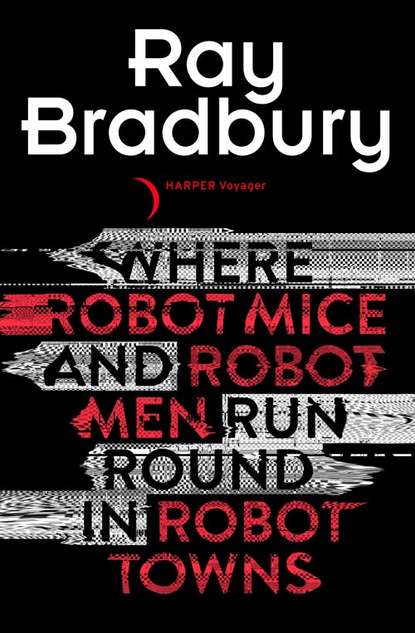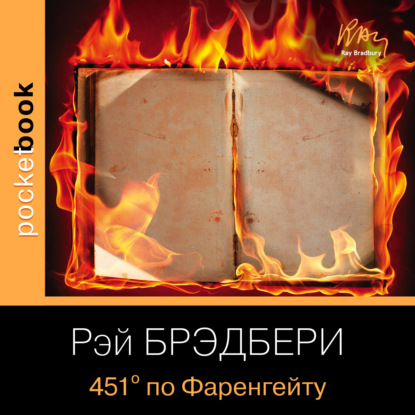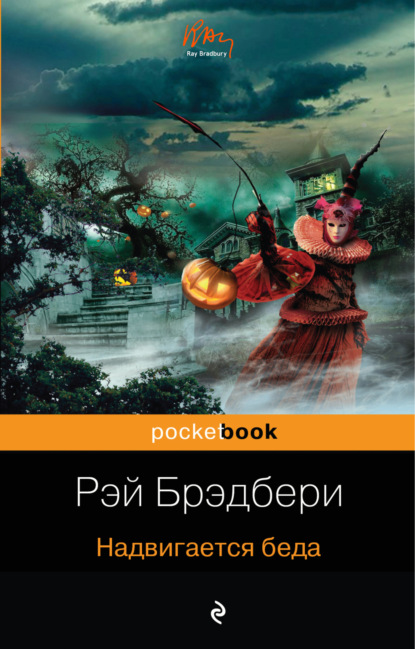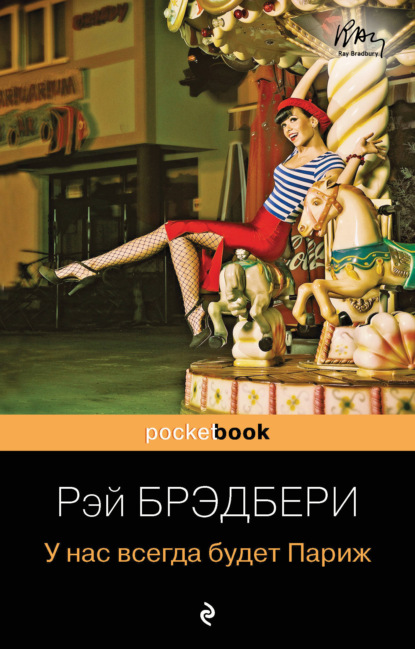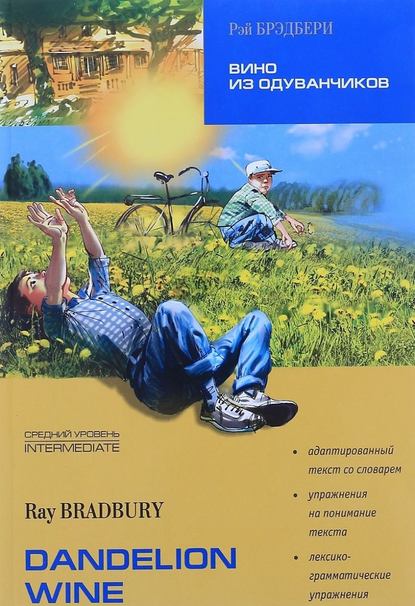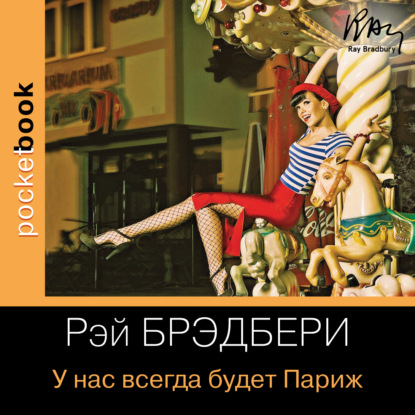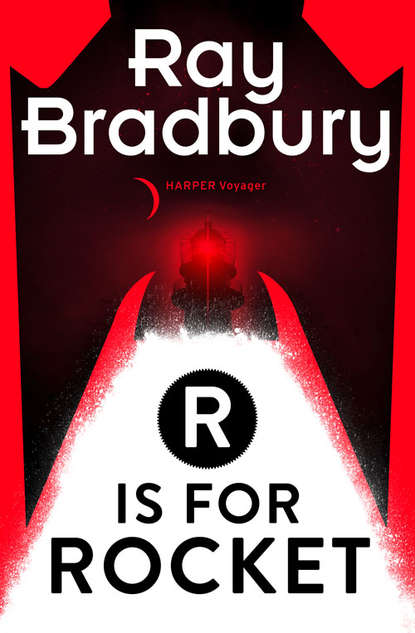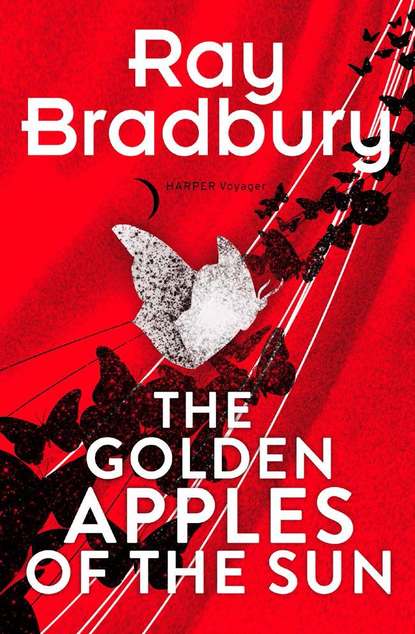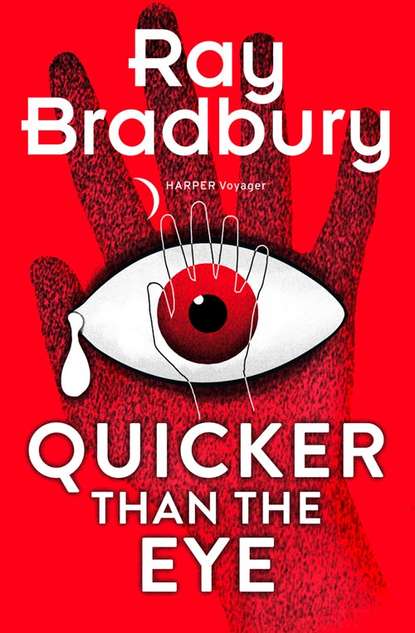
Полная версия
Quicker than the Eye
He came four nights in a row.
“You got an audience, Ellie,” said Johnny on the third night.
“So I see,” she said.
“Don’t pay no attention,” said Johnny.
“I won’t,” she said. “Why should I? Don’t worry.”
After all, she’d done the act for years. Johnny slammed on the power, and it filled her from ankle to elbows to ears as he handed her the bright sword and she thrust it out blindly over the audience, smiling under her half mask, to let them tap shoulders and brows as the blue sparks crackled and spat. On the fourth night she shoved the sword far out toward the young man with the sweating pink face, first among the crowd. The young man raised his hand swiftly, eagerly, as if to seize the blade. Blue sparks leaped the gap, but his hand didn’t flinch or stop as he grabbed on and took the fire in his fingers and then his fist and then his wrist and his arm into his body.
His eyes, in the light, flared with blue alcohol flame, fed by the sword, whose fire in passing lit her arm and face and body. He stretched his hand still farther out, his waist jammed against the rope, silent and tense. Then Johnny cried, “Everybody touch it! Every one!” And Electra lifted the blade out on the air for others to feel and stroke, while Johnny cursed. Through the blindfold she saw the terrible illumination which would not leave the young man’s face.
The fifth night, instead of touching the young man’s fingers, she tapped the blazing tip of the sword against the palm of his hand, brushing and burning until he shut his eyes.
That night she walked out on the lake pier after the show and did not look back as she moved, but listened and began to smile. The lake shook against the rotting piles. The carnival lights made wandering, uneasy roads on the black water. The Ferris wheel whirled high and around, with its faint screams, and far away the calliope steamed and sobbed “Beautiful Ohio.” She slowed her walking. She put out her right foot, slowly, then her left, then she stopped and turned her head. And as she turned she saw the shadow, and his arms moved around her. A long time later she leaned back in his arms and stared up into his healthy, excited pink face, and said, “My God, you’re more dangerous than my chair!”
“Is your name really Electra?” he said.
The next night as the power leaped through her, she stiffened, shuddered, and clamped her lips in her teeth, moaning. Her legs stirred; her hands groped and scratched the chair arms.
“What’s wrong!” Beyond the blindfold, Johnny cried out, “What?”
And cut the power.
“I’m all right,” she gasped. The crowd murmured. “It’s nothing. Go on! Now!”
And he hit the switch.
The fire crawled through her and again she clenched her teeth and threw her head back against the chair. A face rushed out of the dark, and a body with it, to press against her. The power exploded. The electric chair stopped, then melted.
Johnny, a million miles off in the dark, handed her the sword. Her limp, twitching hand dropped it. He handed it back and instinctively she shoved it far out into the night.
Someone, out there in the roaring darkness, touched the blade. She could imagine his eyes burning there, his lips parted as the power jolted him. He was pressed against the rope, hard, hard against the rope, and could not breathe or cry out or pull back!
The power died. The smell of lightning stayed.
“That’s it!” someone cried.
Johnny left her to squirm out of the leather straps, jumped off the low platform, and walked out toward the midway. Convulsively, she tore off the bonds, trembling. She ran from the tent, not looking back to see if the young man was still there against the rope.
She fell upon the cot of the trailer behind the tent, perspiring and shaking, and was still crying when Johnny stepped in to look down at her.
“What’s the matter?” he said.
“Nothing, nothing, Johnny.”
“What was that you pulled out there just now?”
“Nothing, nothing.”
“Nothing, nothing,” he said. “Like hell it is.” His face twisted. “Like hell! You haven’t done anything like that for years!”
“I was nervous!”
“Years it’s been,” he said. “When we were first married you did that. You think I forgot how when I switched the power on this same thing happened like tonight? You been sitting in that chair for three years like someone listening to a radio. And tonight, and tonight!” he cried, choking, standing over her, his fists tightened. “Damn it, tonight.”
“Please, please, Johnny. I was nervous.”
“What were you thinking there in the chair?” he demanded, leaning down wildly. “What did you think about?”
“Nothing, Johnny, nothing.” He grabbed her hair. “Please!”
He threw her head down, turned, walked out, and stopped outside. “I know what you were thinking,” he said. “I know.” And she heard his footsteps fade away.
And the night passed and the day and another night with another crowd.
But nowhere in the crowd did she see his face. Now, in the blackness, with the blindfold tight to her face, she sat in the electric chair and waited while Johnny described the wonders of the Skeleton Man over on the next platform, and still she waited and stared at everyone who entered the tent. Johnny walked around the Skeleton Man, all stiffness, describing the living skull and the terrible bones, and at last the crowd rustled, turned, led by Johnny, his voice like a battered brass horn as he jumped up onto the platform with her so violently that she jerked aside and licked her red lips.
And now the knot of the blindfold was tied tighter and yet tighter as he bent to whisper:
“Miss him?”
She said nothing, but held her head up. The crowd stirred below, like animals in a straw stable.
“He’s not here,” he whispered and locked the electrodes on her arms. She was silent. He whispered again, “He’ll never come back.” He fitted the black skullcap over her hair. She trembled. “Afraid?” he wondered quietly. “What of?” He snapped the straps around her ankles. “Don’t be afraid. Good clean electricity.” A gasp escaped her lips. He stood up. “I hit him,” he said softly, touching her blindfold. “Hit him so hard I broke his front teeth. Then I knocked him against a wall and hit him again and again—” He stopped and shouted. “Ladies and gentlemen, witness the most astounding act in carnival history! Here you see a penitentiary electric chair exactly like those used in our biggest prisons. Perfect for the destruction of criminals!” With this last word she fell forward, fingers scratching the wood as he cried, “Before your very eyes, this dear lady will be electrocuted!”
The crowd murmured, and she thought of the tesla transformer under the platform and how Johnny might have fixed it so she got amperage, not voltage. Accident, bad accident. Shame. Amperage, not voltage.
She wrenched her right hand free of its leather strap and heard the power switch slam shut as the blue fire seized and shook her, screaming!
The audience applauded and whistled and stomped. Oh, she thought wildly, this is good, my death? Great! More applause! More screams!
Out of the black spaces a body fell. “Hit him so hard I broke his teeth!” The body jerked. “Then I hit him and hit him again!” The body fell, was picked up, fell again. She screamed high and long as a million unseen mouths stung and bit her. Blue flames seized her heart. The young man’s body writhed and exploded in bone shrapnel, flame, and ash.
Calmly. Johnny handed her the sword.
“Now,” he said.
Being safe was like a blow to the stomach.
She sobbed, fumbling at the sword, quivering and jerking, unable to move. The power hummed and the crowd stuck out their hands, some like spiders, some like birds leaping away wherever the sword sizzled and spat.
The power still lived in her bones as all over the carnival grounds the lights dimmed.
Click. The switch lay in its Off bed.
She sank in upon herself, the sweat running around her nose and her sagging mouth. Gasping, she fought free to pull the blindfold away.
The crowd had gone off to another platform, another miracle, where the Fat Lady called and they obeyed.
Johnny’s hand lay on the switch. He dropped his hand, stood there watching her, his dark eyes cold, not flickering.
The tent lights looked dirty, old, yellow, and unclean. She stared blindly at the retreating crowd, Johnny, the tent, the lights. She looked shrunken in the chair. Half of her had poured out through the wires, flushed into the copper cable that fled over the town, leaping from high pole to pole. She lifted her head as if it weighed ninety pounds. The clean light had come, entered into and slid through her, and blasted out again; but it was not the same light anymore. She had changed it; she saw how she had made it. And she shivered because the light was discolored.
Johnny’s mouth opened. She didn’t hear him at first. He had to repeat what had to be said.
“You’re dead,” he said firmly. And again: “You’re dead.”
And sitting there in the electric chair, trapped by the leather straps, with a wind from the tent flaps playing over her face, evaporating the wetness, staring at him and seeing the dark in his eyes, she gave the only answer it was possible to give.
“Yes,” she said, eyes shut. “Oh, yes. I am.”
Hopscotch
Vinia woke to the sound of a rabbit running down and across an endless moonlit field; but it was only the soft, quick beating of her heart. She lay on the bed for a moment, getting her breath. Now the sound of the running faded and was gone at a great distance. At last she sat up and looked down from her second-story bedroom window and there below, on the long sidewalk, in the faint moonlight before dawn, was the hopscotch.
Late yesterday, some child had chalked it out, immense and endlessly augmented, square upon square, line after line, numeral following numeral. You could not see the end of it. Down the street it built its crazy pattern, 3, 4, 5, on up to 10, then 30, 50, 90, on away to turn far corners. Never in all the children’s world a hopscotch like this! You could jump forever toward the horizon.
Now in the very early, very quiet morning, her eyes traveled and jumped, paused and hopped, along that presumptuous ladder of chalk-scratches and she heard herself whisper:
“Sixteen.”
But she did not run on from there.
The next square waited, she knew, with the scribbled blue-chalk 17, but her mind flung out its arms and balanced, teetering, poised with her numb foot planted across the 1 and the 6, and could go no further.
Trembling, she lay back down.
The room was like the bottom of a cool well all night and she lay in it like a white stone in a well, enjoying it, floating in the dark yet clear element of half dreams and half wakening. She felt the breath move in small jets from her nostrils and she felt the immense sweep of her eyelids shutting and opening again and again. And at last she felt the fever brought into her room by the presence of the sun beyond the hills.
Morning, she thought. It might be a special day. After all, it’s my birthday. Anything might happen. And I hope it does.
The air moved the white curtains like a summer breath.
“Vinia …?”
A voice was calling. But it couldn’t be a voice. Yet—Vinia raised herself—there it was again.
“Vinia …?”
She slipped from bed and ran to the window of her high second-story window.
There on the fresh lawn below, calling up to her in the early hour, stood James Conway, no older than she, seventeen, very seriously smiling, waving his hand now as her head appeared.
“Jim, what’re you doing here?” she said, and thought, Does he know what day this is?
“I’ve been up an hour already,” he replied. “I’m going for a walk, starting early, all day. Want to come along?”
“Oh, but I couldn’t … my folks won’t be back till late tonight, I’m alone, I’m supposed to stay …”
She saw the green hills beyond the town and the roads leading out into summer, leading out into August and rivers and places beyond this town and this house and this room and this particular moment.
“I can’t go …” she said faintly.
“I can’t hear you!” he protested mildly, smiling up at her under a shielding hand.
“Why did you ask me to walk with you, and not someone else?”
He considered this for a moment. “I don’t know,” he admitted. He thought it over again, and gave her his most pleasant and agreeable look. “Because, that’s all, just because.”
“I’ll be down,” she said.
“Hey!” he said.
But the window was empty.
They stood in the center of the perfect, jeweled lawn, over which one set of prints, hers, had run, leaving marks, and another, his, had walked in great slow strides to meet them. The town was silent as a stopped clock. All the shades were still down.
“My gosh,” said Vinia, “it’s early. It’s crazy-early. I’ve never been up this early and out this early in years. Listen to everyone sleeping.”
Конец ознакомительного фрагмента.
Текст предоставлен ООО «ЛитРес».
Прочитайте эту книгу целиком, купив полную легальную версию на ЛитРес.
Безопасно оплатить книгу можно банковской картой Visa, MasterCard, Maestro, со счета мобильного телефона, с платежного терминала, в салоне МТС или Связной, через PayPal, WebMoney, Яндекс.Деньги, QIWI Кошелек, бонусными картами или другим удобным Вам способом.



